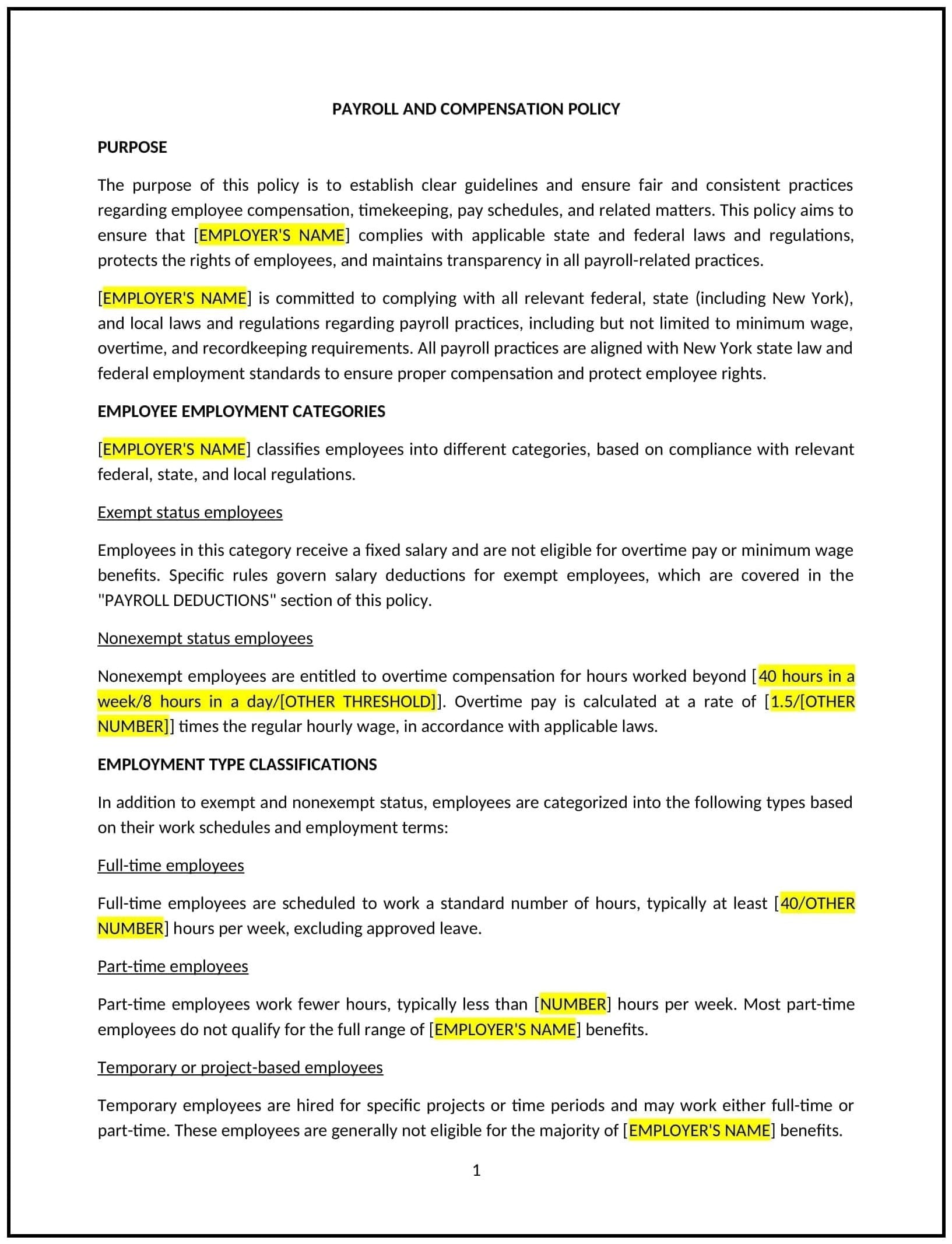Payroll and compensation policy (New York): Free template
Got contracts to review? While you're here for policies, let Cobrief make contract review effortless—start your free review now.

Customize this template for free
Payroll and compensation policy (New York)
This payroll and compensation policy is designed to help New York businesses establish clear guidelines for employee compensation, including payroll processes, pay structures, and compliance with state and federal regulations. Whether businesses are managing salaries, hourly wages, overtime, or bonuses, this template provides a structured approach to ensure fair and consistent pay practices.
By adopting this template, businesses can promote transparency, streamline payroll processes, and ensure compliance with labor laws.
How to use this payroll and compensation policy (New York)
- Define compensation structure: Clearly outline the different types of compensation, including base salaries, hourly wages, overtime pay, commissions, bonuses, and any other financial benefits.
- Address pay periods: Specify the pay frequency (e.g., weekly, bi-weekly, or monthly), and detail the methods of payment (e.g., direct deposit, checks).
- Set overtime pay guidelines: Provide guidelines for overtime pay eligibility, ensuring compliance with New York State and federal wage and hour laws.
- Include payroll deductions: Detail mandatory and optional payroll deductions, such as taxes, benefits, retirement contributions, and garnishments.
- Outline performance-based compensation: Clarify how performance-based compensation, such as bonuses or raises, will be determined and implemented.
Benefits of using a payroll and compensation policy (New York)
This policy offers several benefits for New York businesses:
- Promotes fairness: Clear compensation guidelines ensure all employees are treated equally and transparently in relation to their pay.
- Reduces legal risks: Establishing a structured policy helps businesses comply with New York State wage laws, federal regulations, and tax requirements.
- Enhances employee satisfaction: Transparent compensation practices improve trust and job satisfaction among employees.
- Supports operational efficiency: Standardizing payroll procedures streamlines payroll processing, reducing errors and delays.
- Improves retention: Offering competitive and consistent compensation packages can help retain talent and reduce turnover.
Tips for using this payroll and compensation policy (New York)
- Communicate clearly: Ensure all employees understand their compensation structure, pay schedules, and any applicable deductions through regular communication and employee handbooks.
- Maintain compliance: Regularly review compensation practices to ensure alignment with New York State and federal wage laws, including minimum wage and overtime requirements.
- Track performance: Implement a system to monitor employee performance, ensuring that merit-based raises or bonuses are awarded based on clear and consistent criteria.
- Keep accurate records: Maintain detailed payroll records for all employees, including payment history, tax withholdings, and deductions.
- Review regularly: Update the policy periodically to reflect changes in compensation trends, business needs, or legal requirements.